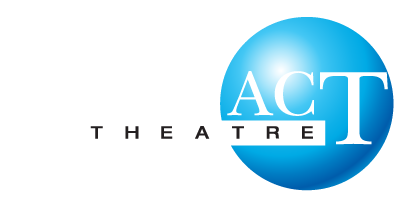by Grace DeWolff
This season, Next Act Theatre launched a new arts education initiative that takes Shakespeare directly into schools.
When did you first learn about William Shakespeare? Was it in a high school freshman English class? Did a parent drag you to the theatre, and once your ear was tuned to the language, did you begin to lean forward in your seat? Did someone dump the Complete Works on your desk and tell you to read it? Was the BBC’s Television Shakespeare on one day in the early ’80s?
My goal as a teacher is to give high school students a positive experience with the Bard, one they’ll hopefully remember fondly enough to buy a ticket to a play, put a Shakespeare movie on their Netflix cue, or audition for a role at school. We start with what they know – I ask them how or if they’ve encountered Shakespeare before (some have, some haven’t) and what they think about it. The spectrum of experience and opinion is wide and varied – some young people think it’s boring and not relatable, some young people think it’s exciting and fun.
Then, we put Shakespeare where he belongs in historical context: about a century and a half after the printing press was invented, and only about 50 years before the first colony at Jamestown. We talk about what that means for the English language – Shakespeare’s original texts have early modern vocabulary but no grasp yet of grammar or spelling. We talk about how English evolves (and the students attempt to keep me up to date on the new hip lingo – although I’m told nobody says “hip” anymore) and once we feel prepared, we dive into Shakespeare’s verse structure, dirty jokes, and colorful characters. We don’t just read; we play.
I have secret goals – ones I don’t overtly state to the class. It’s my belief that studying the language you use daily helps you express yourself better – and there is research that suggests that when you expand your emotional vocabulary, you are literally able to feel those emotions more deeply. Aldous Huxley describes discovering Shakespeare in his book “Brave New World” thusly: “The strange words rolled through his mind; rumbled, like talking thunder … What did the words exactly mean? He only half knew. But their magic was strong.”
It’s my hope that I can pass on some of that magic to the next generation. I’m so lucky that Next Act has allowed me to begin my Classroom Shakespeare workshops this year! It is my favorite thing to do, and I hope the program continues to evolve and adapt to student needs – just like the English language.
